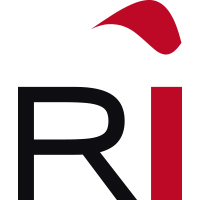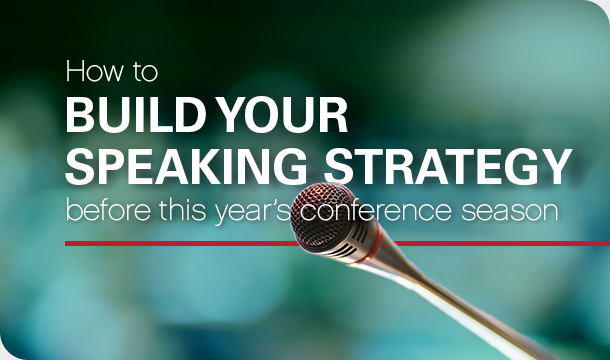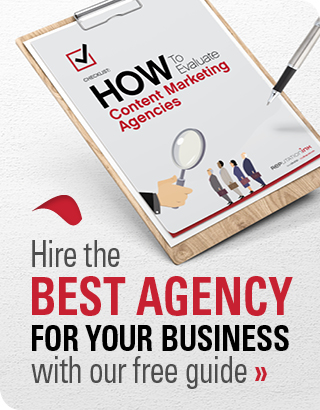How to build your speaking strategy before this year’s conference season
Legalweek. ILTACON. American Bar Association (ABA) section seminars. Sector-specific conferences.
These eclectic events share two things in common: potential clients in attendance and invaluable speaking opportunities to reach them.
Leaders and professionals should consider joining the legal speaking circuit to amp up their profile and build their clientele. After all, speaking engagements are more than just additional CV bullets; they demonstrate authority and expertise to prospects.
However, lawyers and business leaders cannot expect panel invites based on reputation alone (unless they are U.S. Supreme Court justices or Fortune 500 CEOs). The average professional plebian can avoid the submission slush pile by approaching conference season like litigators: building a robust case with strong evidence of prior engagements and accomplishments.
Fortunately, a competitive submission does not need to feature a laundry list of prior speaking engagements — or any at all! What matters more is whether a speaker candidate made an effort to establish their expertise. Establishing third-party credibility through article writing, podcast appearances, smaller speaking engagements and more can give organizers the confidence and social proof they need to gamble on accomplished professionals with valuable insights.
Lay the groundwork and build your case
Well-known panelists and keynote presenters don’t just wake up one day and decide to become speakers. Instead, they spend years building their reputations and demonstrating their credibility through other avenues. But attorneys and executives with no conference credits shouldn’t sulk on the sidelines; there is a lot they can do in the interim. How? By going after media opportunities and smaller engagements, building their expertise up opportunity by opportunity.
Bylined articles
Well-written articles may not reflect one’s ability to captivate an audience. However, they are a great avenue for expressing expertise — all without judgmental crowds staring down from behind the spotlight.
Every speaker submission will ask for links to previously published work addressing the speaker’s proposed topics. Speaker candidates can tease organizers about the speaking points and perspectives they could offer while showing they have third-party validation from established outlets. Contributors also have free reign over the topics they cover and how they present them, so long as they meet editorial guidelines and accommodate an editor’s redlines.
Granted, legal publications can be challenging to break into and require different writing approaches (a dedicated legal PR agency can help with this!). Clients should convene with their agency account managers to identify publications and timely writing topics they could target based on their experience and speaking topic ideas.
Becoming a trusted source or guest
While article writing allows professionals to communicate their authority in controlled environments, the process can require dedicated hours and focus. Media interviews and guest appearances can be viable alternatives for prospective panelists who cannot fit writing time alongside their billable commitments or schedules. Lawyers and executives will have less control over how they present themselves since they are at the mercy of reporters or podcast hosts. However, they can still rack up helpful clips and soundbites that lift the curtain on what they could contribute.
Attorneys and businesspeople should proactively identify reporters and podcast hosts who address news developments within their practice and business focuses. They should also come to the table with topics they can discuss, preferably tied to news events or trends within the past 90 days.
PR agencies can work with a firm or company’s in-house team to identify appropriate reporter and podcast host contacts and filter through news topics and matters the client could comment on or discuss.
Awards submissions
Professionals love accolades, and so do event organizers catering to them. A panelist candidate’s submission can be strengthened by a few awards.
Not all awards are created equal, and the ones panelists should target will vary by their practice or business specialties. Large law firm lawyers and transactional lawyers should look into Chambers, the Legal 500 and even ALM and Law360’s awards. Boutique litigators with notable case wins can also pursue Benchmark Litigation, which emphasizes notable matters and representations when assesing firms. Legal tech stakeholders should consider awards like Fastcase 50, the American Legal Technology Awards, the Legaltech Breakthrough Awards, and even Chambers and Lawdragon’s legal tech guides.
Regardless of the awards panelists apply for, receiving recognition from established awards and rankings guides can elevate a panelist candidate above others with similar experience but fewer accolades. Candidates should check with their PR contacts to review which opportunities would best fit their conference circuit goals.
Build your own opportunities
What do Bob Ambrogi, John Quinn, Alex Su and Cat Casey have in common? They leveraged blogging, podcasting and social media to bring attention to their personal brands. In doing so, they parlayed their knowledge and platforms into industry influence.
Some prospective speakers may bristle at the idea of filming themselves for TikTok, pulling up their keyboard or turning on a podcast mic to wax poetic about the law — and themselves! Fortunately, applicants don’t need to level up their dancing skills or create AI avatars (though if that’s your style, we’re not stopping you!). Instead, they should turn to their established networks of clients and colleagues for ideas, appearances, collaborations and contributions. If anything, doing so will strengthen their relationships and maybe even lead to reciprocated opportunities. And if professionals can sneak in taped presentations, they can prepare a sample reel showing organizers what they could expect on stage.
Identify the right events — and apply!
With their media portfolios and awards lists in tow, applicants can start submitting to conferences. While the speaker submission process can be a numbers game, aspiring speakers shouldn’t apply to every conference featuring the words “legal” or “law.” They should narrow their list down to just those events that facilitate meaningful prospective client connections. A professional’s success in identifying the right events will hinge on how well they can visualize their ideal clients and whether their speaking topics fit conference agendas.
Attendee focus
It’s important for any speaker candidate to think about their ideal clients — or even the kinds of new clients they are attempting to target. Talk to these individuals, read their blogs and pay close attention to their social-media-published itineraries and event hashtags. Each holds clues regarding which events professionals should target.
The best events for a speaker candidate may not be the largest ones; industry and attendee focus tend to be more important. For those in legal tech or legal ops targeting large-budget customers, events such as Legalweek, CLOC and ILTACON should be on their agendas. However, law firms that generate much of their books from attorney referrals may want to consider smaller local events that cater to peer firms and local stakeholders.
Event themes
Professionals should also confirm if their shortlisted conferences have annual themes. The National Contract Management Association’s World Congress is a good example; for 2024, organizers are accepting submissions around the theme “Better Contracting, Better Outcomes.” The American Bar Association also hosts events and summits by practice group, often covering emerging trends practitioners in those areas face. When developing topics, speakers should look for events that coincide with a firm’s strengths or service lines.
What to consider after identifying preferred events
While there are always opportunities that involve rolling submissions, it’s best to plan speaking events a year in advance. If possible, speaker applicants should attend their preferred events the year before they apply to better understand what to expect and the kinds of companies, lawyers and other potential partners that often show up.
Submission preparation
Once professionals have settled on their preferred conferences, they should pull the trigger and start their submission paperwork. While event submission requirements vary, they usually request the following:
- A brief description of the applicant’s background, including qualifications to speak on the proposed topics.
- Examples of past articles, podcast appearances and speaking engagements.
- Brief descriptions of why the applicant’s proposed topics matter and what attendees will get out of the presentations.
- A list of other colleagues or industry contacts interested in presenting with the applicant, if applicable. For example, co-presenting with in-house counsel can help increase a vendor’s chances of being selected for certain events. Candidates should talk to interested colleagues first and confirm their availability before submitting joint speaker proposals.
Speaking engagements should never be sales pitches. However, client accomplishments or company product releases can be used as examples if they help illustrate talking points.
Event attendees love hearing stories unfold. Depending on the panel and conference, applicants can tease client projects to illustrate their points. For executives, product launches or case studies can serve as helpful examples — so long as they use them to educate and inform audiences.
There are additional steps applicants can take to make their submissions even more attractive. For one, professionals should prepare reels of themselves speaking in action. Ideally, they can pull from past speaking engagement footage, even from smaller events and lunch-and-learns. If they cannot find relevant examples, then it’s time to press the record button. Speak in front of an audience of one. Appear on podcasts, including those taped via video with social media in mind. Applicants should do whatever they need to demonstrate how they can captivate audiences from the podium.
If a professional does have prior engagement footage they can share, they should go a step further and consider who they could ask to serve as speaking references. Reference lists can give organizers the confidence they need to know that they are investing their time in the right panelist options.
Succeeding in conference season
Breaking into the legal speaking circuit is by no means easy. It takes careful planning — sometimes over several years — to develop a reputation as a home-run speaker.
However, professionals should not be deterred by the high bar accompanying speaker and panel submissions. They should put time into other media engagements, fine-tuning their messaging and organizing the submission information, reels and references they need to put their best foot forward. In doing so, any attorney or business stakeholder will be able to craft competitive submissions for conference season.








